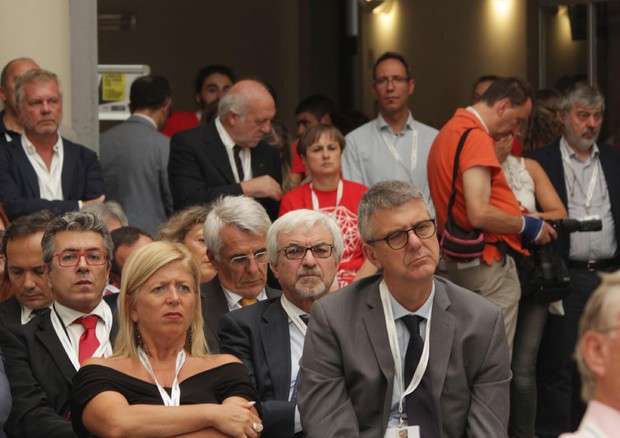Education for development - Manfredi
'No sustainable and inclusive development without education'
(ANSA) - Udine, June 30 - The president of the Italian
Conference of Rectors (CRUI), Gaetano Manfredi, said education
is key to sustainable development at the G7 University event,
wrapping up Friday with the approval of a Manifesto
"There can be no sustainable and inclusive development
without an investment in education", said Manfredi.
"Today, we can build a better world only by looking at women
and men as individuals and giving value to their competence.
"This is the message the comes from Udine, I hope our
politicians will listen to it.
"We have worked on the idea of a global citizenship of
education and on tearing down barriers to widen access to higher
education, to create more development, increase tolerance,
guarantee a more democratic system where diversity prompts
common growth", Manfredi explained.
"National and supranational policies are necessary" to
accomplish this "in terms of investments, processes and rules",
he noted.
According to Manfredi, universities from G7 countries found
common ground in certain values in the Manifesto: "In
particular, having the right balance between competition and
inclusion, generations, different parts of the world and
considering university as a platform to share, a community open
to all citizens to build a common future".
Manfredi also stressed that university credits should be
recognized at a European level, an issue discussed at the G7.
"It is very important to have a community in which teachers
and students can move with their degrees and work position
recognized", he said.
He also called for common homogeneous policies and "a
European government of processes".
In terms of funding, Manfredi urged "appropriate investments
because it is necessary to have an education of quality and
equal access and opportunities for all".
Manfredi concluded saying that Italian universities are good
and well-distributed across the country and have contributed to
"transform an agricultural country into an industrial power and
have built a democratic society".
However, he concluded, "we still have too many youths who
don't get an education or have difficulty to complete it and are
unable to benefit from their sacrifices.
"We have to work to build a university that is increasingly
inclusive and attractive, in which competence and merit are
central".
RIPRODUZIONE RISERVATA © Copyright ANSA







